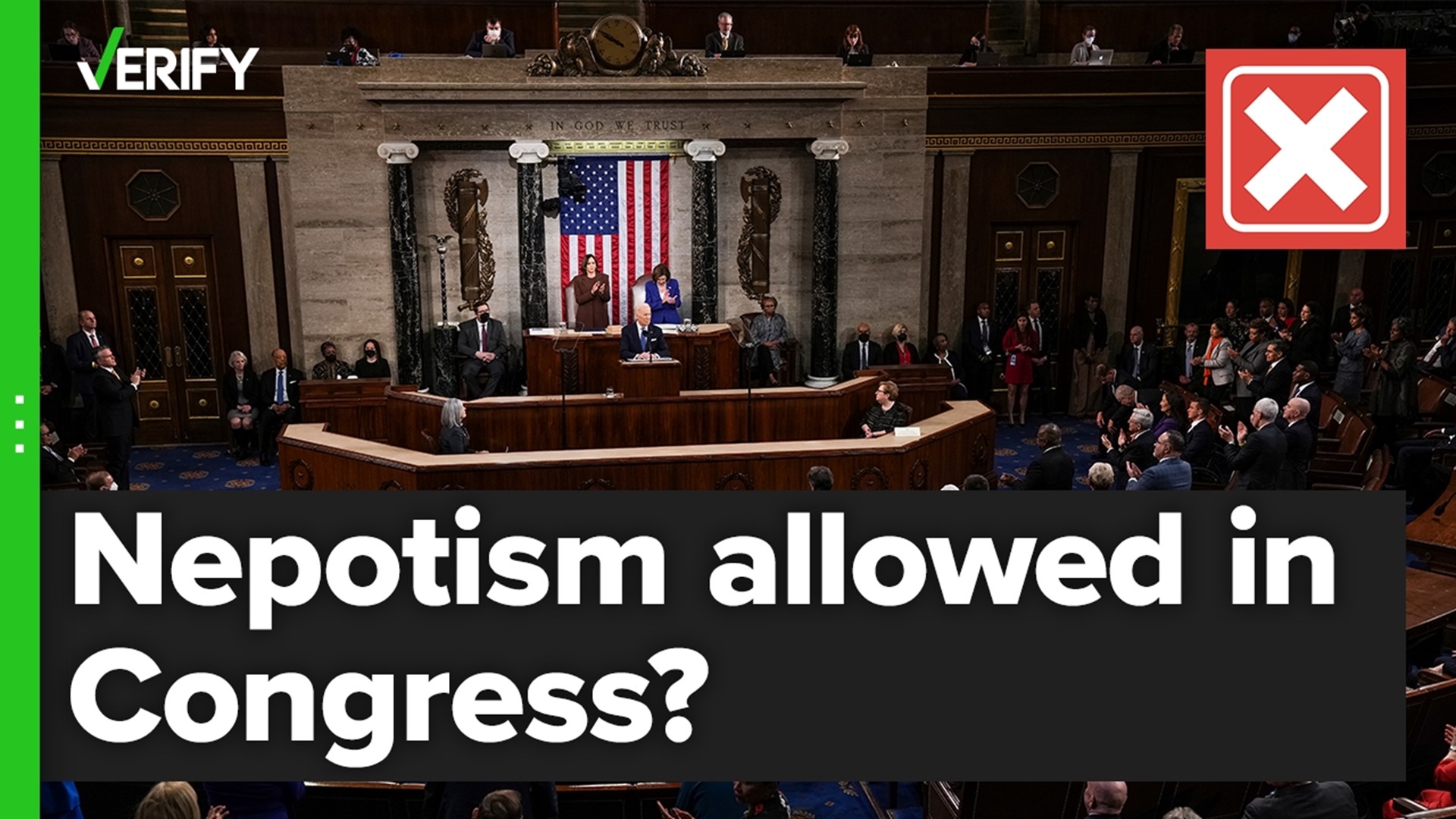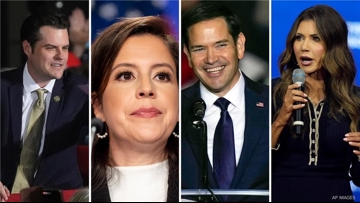Recently, VERIFY confirmed that members of Congress did not in fact give themselves a 21% raise, as some viral posts claimed.
Some VERIFY viewers had follow-up questions regarding ethical conduct in Congress, including one who asked whether members are allowed to hire their relatives as staff.
THE QUESTION
Can members of Congress hire their family members?
THE SOURCES
THE ANSWER
No, members of Congress cannot hire their family members. Nepotism is banned throughout the federal government, but there are exceptions for the Executive Office of the President, as well as political campaigns.
WHAT WE FOUND
The anti-nepotism laws that currently cover the federal government are actually a relatively recent creation. They were passed in 1967, a few years after President John F. Kennedy nominated his brother Robert to be U.S. Attorney General, a position he held from 1961 to 1964.
Since 1967, the U.S. Code has banned nepotism in the federal government. 5 U.S. Code § 3110 reads in part, “A public official may not appoint, employ, promote, advance, or advocate for appointment, employment, promotion, or advancement, in or to a civilian position in the agency in which he is serving or over which he exercises jurisdiction or control any individual who is a relative of the public official.”
The law lists more than two dozen types of banned relatives. It applies to executive agencies, federal courts, and legislative offices (i.e. Congress).
Members of Congress must submit monthly reports showing no relatives are on their staff, according to the House Ethics Manual.
However, federal politicians can hire relatives to their campaigns. Members of both parties occasionally have spouses or other relatives as campaign staffers.
Campaigns are paid for by donations, not taxpayer money, so they’re governed by different laws. And the Federal Election Commission says that as long as the relative is doing bona fide work for the campaign, and not being paid more than fair market value, they’re following the rules.
Anti-nepotism laws came into focus during the Trump administration, after President Donald Trump hired his daughter Ivanka Trump and his son-in-law Jared Kushner. The issue had been raised in the past too, such as when President Bill Clinton appointed his wife Hillary to a health care task force.
Ivanka Trump and Kushner were not paid for their roles in the Trump White House, but that isn’t actually why their hires were permitted.
After Kushner’s initial controversial hiring, Trump’s White House asked the Department of Justice to weigh in on the issue, and the DOJ determined the Office of the President specifically is exempt from anti-nepotism provisions.
The DOJ lawyer argued a different law from 1978 carved out that exception. That law states, “the president is authorized to appoint and fix the pay of employees in the White House Office without regard to any other provision of law regulating the employment or compensation of persons in the government service.”
Some outside lawyers disagreed with that interpretation, but regardless, Kushner and Ivanka Trump were allowed to keep their posts.
There is also no law prohibiting members of Congress or the federal government from hiring their friends, as long as there’s no quid pro quo. In other words, they cannot promise a federal job in exchange for political support or donations.
More from VERIFY: No, Congress members did not give themselves a 21% pay raise in 2022












